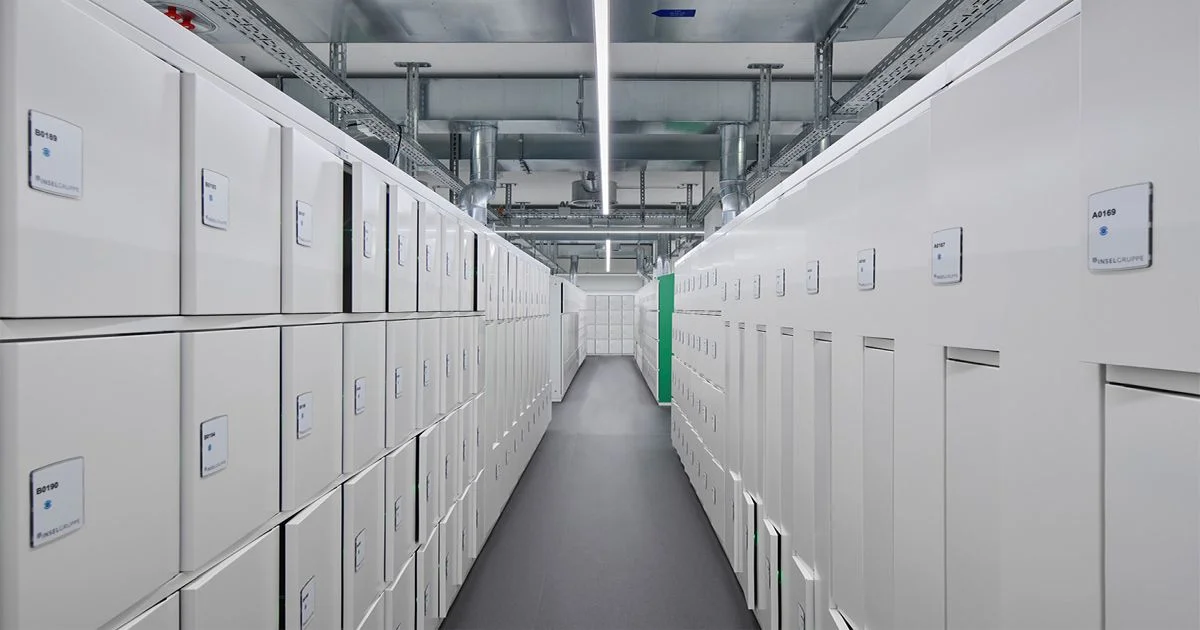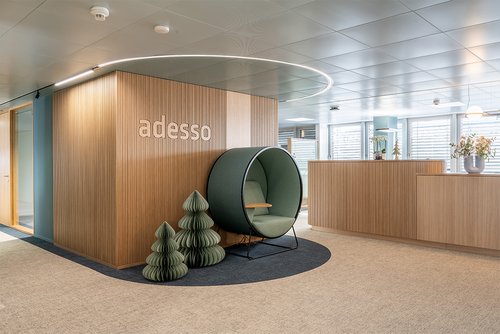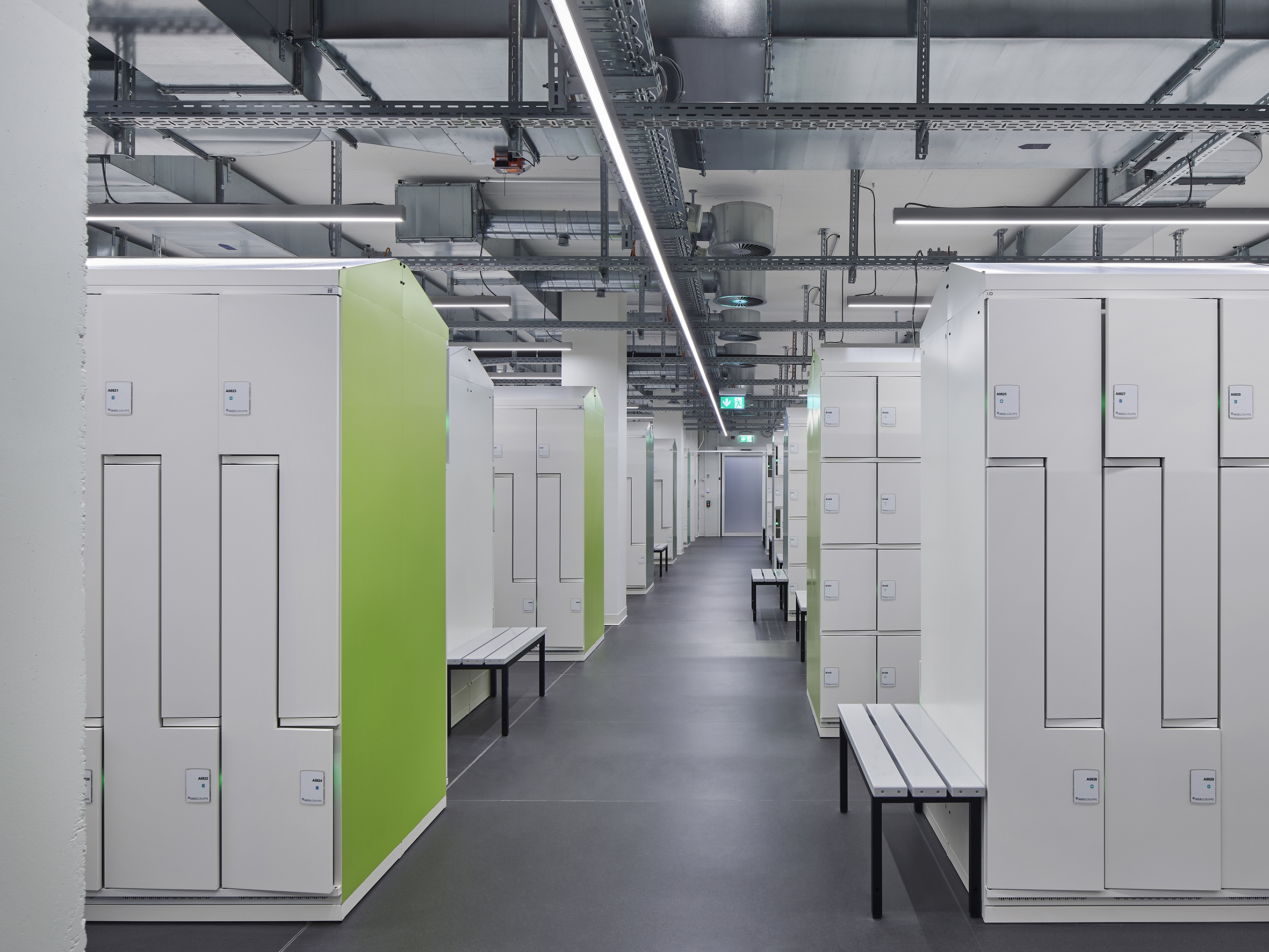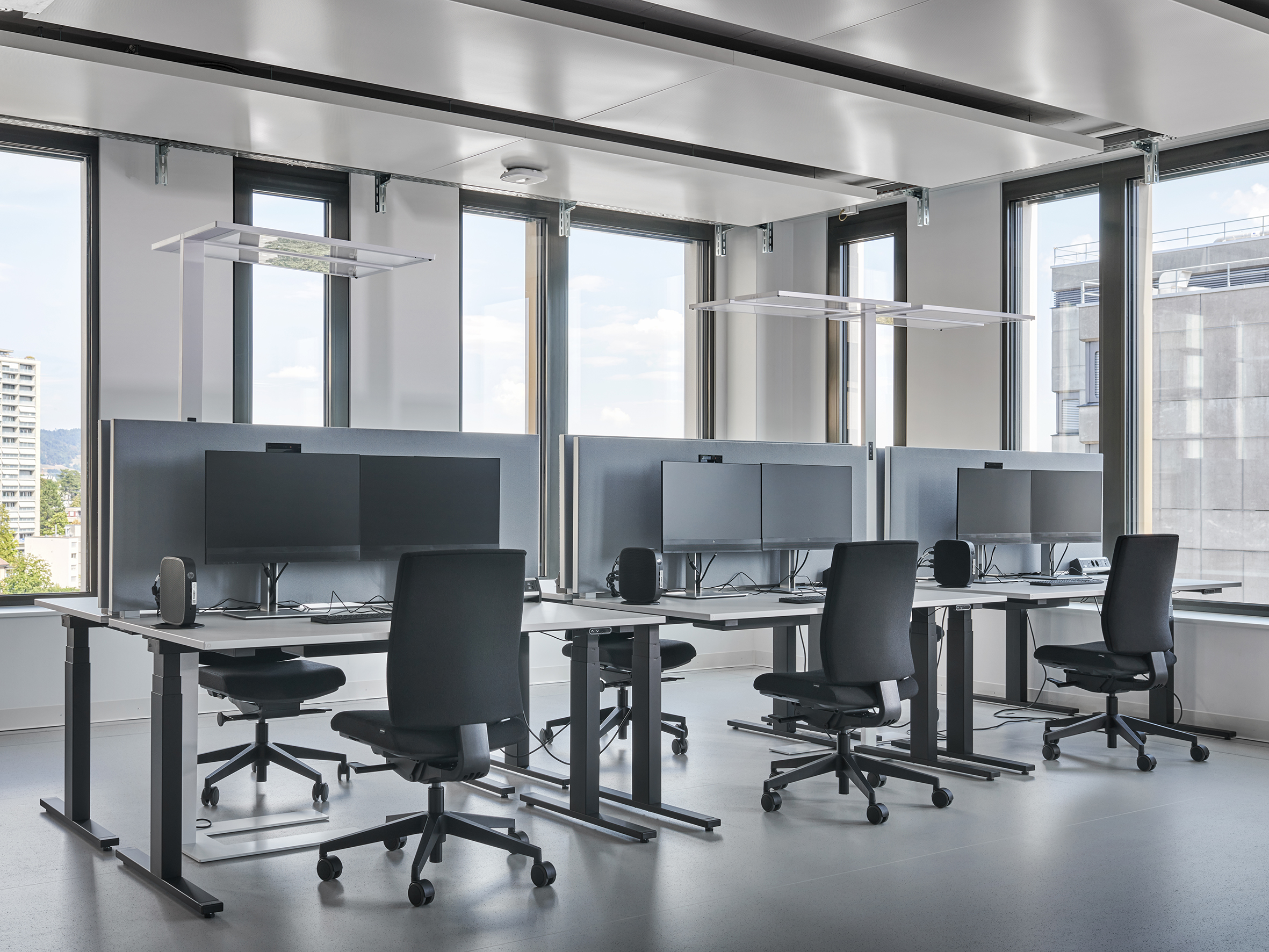Products
Rootline Navigation
The health care system in Switzerland is struggling with its finances. The fact is, growing demand on performance is a challenge to viable operation, and over the last few years, a number of hospitals have been forced to close, while others have needed financial aid. One of the often underestimated cost factors in the overall budget is the non-medical infrastructure. Office outfitter Lista Office LO, based in East Switzerland, demonstrates how foresighted investments can lead to long-term savings.
Hospitals need a large amount of space, energy, costly medical equipment and personnel. Against these major cost factors, the non-medical expenses of outfitting offices and staff areas might seem to fade into the background. In fact, however, a structured approach to these spaces can have far-reaching effects, and with intelligent solutions, can achieve long-term improvements for staff and long-term savings in the budget: a win particularly for the price-sensitive hospital sector. Office outfitter Lista Office LO, based in East Switzerland, specialises in forward-thinking workplace solutions, and has been working with the specific requirements of the hospital sector for several years now, providing custom solutions tailored to these requirements.
Short-term investments, long-term savings
Four key areas are worthy of a closer study: effective use of space; long-term effectiveness of the setup; promoting staff health and wellbeing, and functionality of the furniture.
A workplace management review forms the basis of optimising use of space. This kind of optimisation means more than just physical utilisation of the space: working processes and job flow pathways are also taken into account, so as to create an integrated, harmonious overall effect.
New infrastructure means planning with the future in mind; existing infrastructure should be reviewed at regular intervals. After all, an intelligent infrastructure is designed and chosen to be flexible and modular throughout its lifespan, ensuring that it can continue to meet changing requirements and working styles – for example, with smart technology add-ons and upgrades.

Healthy hospital staff
Supporting and fostering wellbeing for employees is a key budget aspect with demonstrable effects on personnel costs. Ergonomically adapted sitting and standing furniture, structured zones for work and breaks, and attractive surroundings all have measurable positive effects on performance, motivation, and energy.
Sustainability and efficiency cannot be ignored, particularly in the sense of upkeep and maintenance. Materials that are resilient to corrosion and easy-care surfaces can be cleaned to hospital standards quickly and effectively. If the infrastructure rarely or never needs maintenance, and has longer-than-average manufacturer guarantees, the benefits can be seen in an unexpectedly wide range of cost areas.
“Excellent infrastructure comes with a price tag. However, if it is planned carefully with a long-term view, the investment will pay off through significant savings in areas well beyond the infrastructure itself”, explains Markus Basler, who specialises in planning and implementing complex infrastructure projects.
Press contact
Harald Fitz
Telephone +41 (0) 79 104 71 77
Email harald.fitz@clutterlista-office.com

![[Translate to English:]](/fileadmin/_processed_/6/b/csm_LO_Summit_Red_Dot_Award_Header_News_1200x675px_47b0eee0ca.jpg)
![[Translate to English:]](/fileadmin/_processed_/0/f/csm_LO_Metrix_Red_Dot_Award_Header_News_1200x675px_132a9700ac.jpg)






![[Translate to English:]](/fileadmin/_processed_/9/b/csm_LO_Schule_Degersheim_008_1350x800_eb9fc23d07.jpg)


![[Translate to English:]](/fileadmin/_processed_/4/6/csm_Lista_Office_LO_Referenz_Inselspital_Bern_Slide_07_82d961bb96.jpg)

![[Translate to English:]](/fileadmin/_processed_/f/e/csm_Lista_Office_LO_Referenz_Inselspital_Bern_1200_800_cf114f36fb.jpg)

![[Translate to English:]](/fileadmin/_processed_/a/6/csm_Aarburg_LO_Paradiesli_Header_f18723bc03.jpg)
![[Translate to English:]](/fileadmin/_processed_/c/e/csm_LO_Simply_Header_37261f65a2.jpg)
![[Translate to English:]](/fileadmin/_processed_/1/0/csm_Carletto_Bild_1200x630_ebb1c74b15.png)
![[Translate to English:]](/fileadmin/_processed_/e/0/csm_DE_Familienfreundliches_Unternehmen_1200x630_7211a502b1.png)
![[Translate to English:]](/fileadmin/_processed_/3/9/csm_Blog_LOG_Trend_2023_1200x630px_92e6f96a79.jpg)


